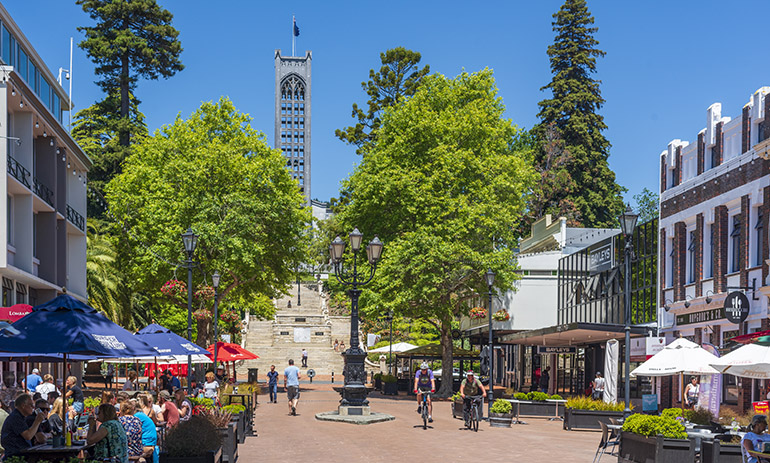Ngā hua nui ā-rohe nō te tau kua hipa | Regional highlights from the last year
The Te Tauihu Intergenerational Strategy states that ‘transformative change often starts small, but it is strategic and enduring’. This resonates as we continue to work collectively across our region to identify and deliver actions and initiatives for our region’s workforce, allowing our economy, our businesses, and most importantly, our people to thrive.
We have created a collaborative strategic approach to regional workforce issues and opportunities
We have worked collaboratively with a wide range of organisations, businesses and community leaders to understand, identify and resolve regional workforce challenges. This has included industry bodies such as Aquaculture NZ. We have been able to develop and access funding for the implementation of a national workforce aquaculture plan, which includes a stocktake of the aquaculture workforce. Alongside the Nelson Regional Development Agency (NRDA) we have worked with our region’s forestry and wood processing businesses to understand their workforce challenges.
We have built strong relationships with the six Workforce Development Councils (WDCs) that set standards, develop qualifications, and help shape the curriculum of vocational education for the industries they represent. We have worked closely with Te Pūkenga | NMIT - the main regional provider of vocational education for our region - and our other vocational providers to understand the offerings, opportunities and challenges in meeting our workforce development needs.
The Tertiary Education Commission (TEC), whose functions include funding and monitoring the performance of the tertiary education sector, is a key partner in supporting a collaborative regional strategic approach to addressing our workforce challenges. We have developed and delivered advice to the TEC on the vocational training our region and industries need to thrive. By clearly understanding our regional workforce needs, TEC will be able to ensure provision of vocational training to meet the identified demand. Alongside our recommendations, we also highlighted the need for detailed regional workforce data and further research to help us understand the opportunities and challenges for our demographic key groups.
We are shaping regional solutions to meet regional labour market needs
Through gathering regional insights and collaborating with organisations, agencies, and employers, we have been able to identify and shape regional solutions for our key sectors and demographic groups.
One of our focuses this year has been to understand how to support our young people transition from school to employment in our region. We have also started to deliver the actions the Older Workers subgroup identified to support the reskilling, upskilling and job shaping that will enable our older workers (50+ years) to continue in paid employment if they wish to do so.
We have seen significant progress on our aquaculture actions and will continue to support the work to map and promote aquaculture career pathways. We have had success with some of our construction actions, noting the ongoing work to gain funding for developing a skills pipeline to support capital projects. We have investigated opportunities to provide more allied trades training in the region and supported Etco, the Electrical Training Company, to establish a strong regional presence.
We have coordinated information and led discussion about the local labour market
Our quarterly regional local insights reports have increased awareness and understanding of our regional workforce issues and opportunities. We gathered these insights through our collaboration with local organisations, agencies, and employers.
The significant challenge of our low regional productivity and ‘sunshine-wages’ alongside the importance of developing our regional workforce was highlighted several times on the front page of regional newspapers. The funding support to implement the Aquaculture Workforce Plan received both national and regional media attention.
We are using our role to influence government decision makers
Along with NRDA, we have worked to coordinate and deliver a regional response to Industry Transformation Plans for the Tourism and the Forestry and Wood Processing sectors. We have contributed to national public consultation on aspects of immigration; changes in the education system; and the reshaping of the careers system.
Looking ahead, we are refining and focusing our current priorities and have taken the opportunity to actively recruit new RSLG members who can bring a youth voice and community perspective to our group.

Photo taken by Oliver Weber, sourced from www.nelsontasman.nz

